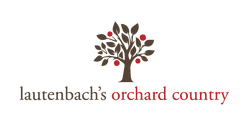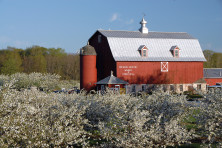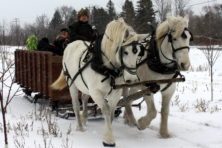WINE TRAILS: Lautenbach’s Orchard Country: Local Fruit, Local Flavors
- Share
- Tweet
- Pin
- Share
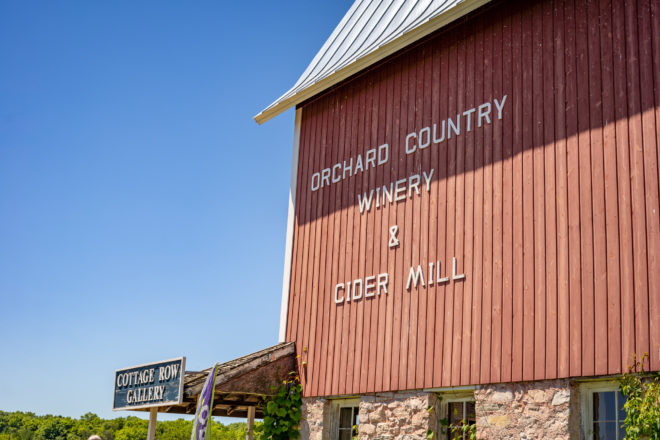
by JIM SCHNAEDTER
Jim Schnaedter describes himself as a wine appreciator, but not an expert. “I love drinking it, pouring it, talking about it and writing about it, but the more I do of each, the more I learn of what I don’t know about it.” He sets out to discover Door County wines and their makers in this series.
Effectively reading people has never been one of my strengths, but some people make an impression through their nonverbals that even I can’t misread. I was meeting with Carrie Lautenbach-Viste to learn more about Lautenbach’s Orchard Country Winery and Market, and every time a portion of her answer to one of my questions related to her father, the expression on her face lit up with what I interpreted as a combination of pride, happiness, love and a hint of sadness.
Bob Lautenbach took over the family farm in the mid-1970s and grew it into a family business that is now run by Carrie and her siblings Erin and Chris. Bob died in July of 2021, but I could sense that his presence was alive in the tasting room where Carrie was telling me about what she most wanted people to know about the family-owned, family-run business that prides itself on serving families.
As Carrie covered the history of Lautenbach’s Orchard Country, my mind kept drifting back to my youth and my family’s yearly visits to Door County. At one point, it returned to the time when my wife and I took our two daughters to Lautenbach’s for a tour. We still use the wine glasses we received during the tasting at the end of the tour.
Carrie answered each of my questions with a story, and each story told me that making and selling wine is much more than a business. In some cases, it is a chisel that carves out the identity of the winemaker. In others, it’s a canvas where the winemaker releases individual creativity. At Lautenbach’s, it appeared to be a calling that brought a family together as part of a mission to serve a community.
Carrie defined that mission simply: local fruit, local flavor.
Lautenbach’s started as a roadside market, and if you look past the modern tasting room where we were having our discussion, it’s easy to see that it still is a roadside market – albeit one that has grown a lot and successfully evolved through the efforts of a committed family with a desire to create an experience that keeps visitors coming back for more.
I found myself immersed in Carrie’s stories, but I reminded myself that I had come to talk wine.
The portfolio of Lautenbach’s Orchard Country is extensive, and sticking with its mission of local fruit, local flavor, it emphasizes wines and hard ciders made from Door County fruit. Estate-grown cherries play a role in more than a dozen wines, for example, and Carrie told me that their number-one seller is Honeycrisp apple.
They also offer estate-grown grape wines using cold-climate grapes from their vineyard, including Frontenac, Frontenac Gris, St. Pepin, La Crescent, Marquette, Petite Pearl and Maréchal Foch. To add variety and additional flavors to the portfolio, they occasionally import and incorporate wine grapes from California, Washington and New York into their blended wines, but local fruit always dominates the final product.
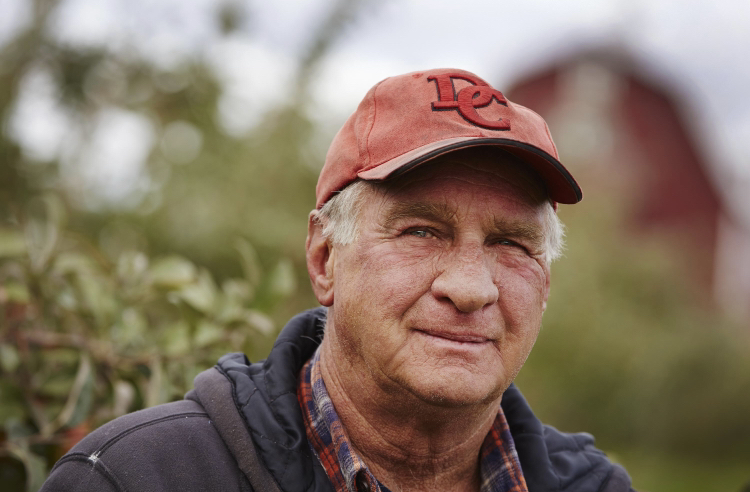
Once again, our discussion of Lautenbach’s Orchard Country returned to family, and this time it was the next generation. Carrie described the “grandchildren wine series,” which features estate-grown grapes that her father named after his grandchildren. I knew, without asking, that the wines in this series were the ones Bob was most proud of.
Then our conversation shifted from the past to the future: where the peninsula’s growing wine industry is headed and the challenges it’s facing. Carrie is in a particularly knowledgeable position on these topics as the president of the Door County Wine Trail, which currently consists of nine county wineries that work together to promote the industry.
To continue the success of her own winery and that of the other local wineries, she said producers must focus not only on the wine – which must be diverse enough to satisfy both sweet-toothed and more serious drinkers – but also on providing a total experience. Each winery has its own way of enhancing that experience with elements such as entertainment and food offerings, an engaging story, and excellent customer service, while it also stays true to the values that have formed its foundation.
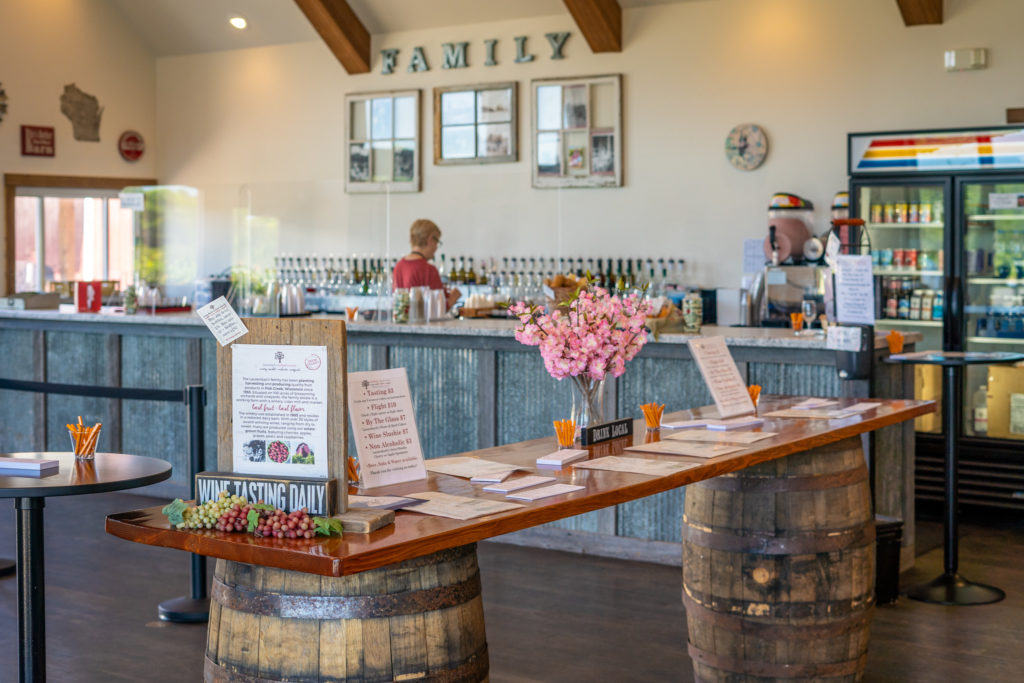
In the case of Lautenbach’s, it’s a combination of local fruit, family values and family orientation, and outstanding customer service. Carrie’s stories about growing up in her family business and learning from her father made it clear that storytelling has played a critical role in building the culture of Lautenbach’s Orchard Country Winery and Market.
As I was driving home from my visit, I reflected on how much I had enjoyed listening to Carrie’s stories, but what really struck me was that it was so easy to see how proud she was of the winery’s history and the role her family has played in its success.
Then my mind took a turn away from wine to another thought: I hope that when I am no longer wandering Door County to pour, drink, talk about and write about wine, and one of my daughters shares a story about me, she will wear that same expression that Carrie did during our conversation.

